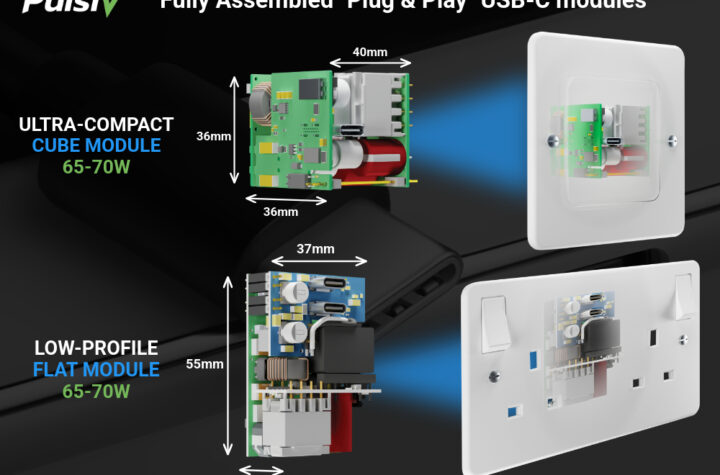
A series of studies by the Capgemini Research Institute have found that the majority of companies in the automotive sector are struggling to get to grips with digital transformation. Fewer than 30% of automotive organizations have a digital unit or coordinate digital initiatives across silos. Conversely nearly 70% of digital masters (across all industries) have a digital unit.
Automotive Industries (AI) asked Dr Rainer Mehl, Executive Vice President, Managing Director Manufacturing, Automotive, Life Sciences at Capgemini Invent, how 5G is set to shake up the auto industry. Mehl: Digitalization goes through the entire process chain. It is about the intelligent industry at one end and on the other is the connected customer – with the driving experience, entertainment, intelligent mobility and more. 5G will accelerate transformation in manufacturing, in autonomous driving, and in connected products. All the necessary technologies are in place. As Dr. Christoph Grote, Senior Vice President Electronics for BMW Group, said: “We expect 5G to become the worldwide dominating mobile communications standard of the next decade”. You will find similar quotes from Telco executives, from Siemens, and from Bosch. The most important automotive markets – first China, now Europe, have adopted 5G as a standard.
AI: How can organizations move faster to large-scale Internet of Things (IoT) adoption? Mehl: It needs to be practical. What surprised me in our research was that one third of automotive companies said they were going to apply for a private 5G license. The main drivers for their own networks are the belief that it will speed up rollout and they will have more free- dom to make their own decisions plus the relevant security aspects. The danger is that they will miss opportunities by spending too much time trying to perfect the whole package. In my view, they should start with gaining practical experiences when using 5G. The technology already supports connected products, intelligent mobility, vehicle safety and sustainability and also smart automation at factory level. What this means is that OEMs should apply 5G in restricted areas to test it and to provide the first user experiences. This is already happening in practice. Ford is testing a fully autonomous 5G connected car in the US. In China Baidu is testing a 5G based autonomous vehicle, and in Germany autonomous cars are running on the A9 motorway in Munich and Nuremberg. Then we have the other areas, like connected products and manufacturing where you can find 5G being used and tested. We see examples of this in an Audi 5G smart factory pilot, and also with the Daimler “factory 56”. We believe this is the right approach. You need to gain practical experience. Test it in a restricted area and, if it works, roll it out.
In addition to the seamless connectivity of all devices in the smart factory, it can also integrate factory output with market demands. The reliability and speed of 5G allows companies to optimize output through instant demand / supply alignment. The benefits we see in our customers are lower inventory costs and more streamlined automated processes which eliminate human errors.
AI: Do automotive companies have the capabilities required for digital transformation? Mehl: Yes and no. Automotive companies have started to recruit software engineers massively over the past year. Judging by press announcements major automotive players are focusing to bring the relevant capabilities on board: for example, Volkswagen is recruiting 3,000 software engineers, and BMW has acquired Critical Software in Portugal. In addition, all are training their own people to reinforce software development capabilities. On the other hand, there are still certain shortages. Basically, it is a major shift from a mechanical production logic towards software driven digital technologies, and that’s where also partners like us are utilized. What I usually say is that the 100% digital new players – whether they are Tesla or NIO in China – need to learn the production process, and the reliability the automotive companies have achieved.
At the same time, the automotive companies need to learn from the software companies how to become digital. They need to become much, much faster. This is the major challenge. New car development time is still between 48 – 70 months, while in software and telecommunications it is six months. OEMs need to bring the shorter development time of the software cycle into their own processes and products. There are many small steps which could change OEMs into much more customer centric companies. There is no alternative. Automotive companies which do not adapt will find themselves losing market share to the more tech-savvy digital companies.
AI: How can Capgemini’s Smart Mobility Connect help OEMs to create the mobility ecosystem of the future? Mehl: We started developing Smart Mobility Connect about one year ago by bringing together our automotive account leaders, our Artificial Intelligence (AI) experts, and our customer centricity experts to discuss the future of connected customers, connected. services and connected ecosystems. We brought not only in all our global expertise but decided to build our customer engine to visualize what is possible to do today. How to connect OEMs, their customers, the relevant digital services and the enrichment from an entire ecosystem. Examples include a car service, where if you indicate your direction to the airport, the offer to book a parking space is immediately coming including in car e-commerce realization of the offer. Other example is in instant CO2 monitor plus options to improve the individual carbon footprint.
AI: Should automotive companies use existing platforms or build their own? Mehl: What we are continuously saying within the platform economy is “please keep the cloud platform standard”. Companies outside the automotive industry are succeeding because they adhere to common standards. In my view an automotive company cannot compete against the development power of tech companies. It is more of a question of how to collaborate in the ecosystem including very relevant questions of data security. When it comes to technology like Alexa and the Google voice capabilities, our opinion is that for those platforms that are so advanced it would be better to find ways to use them securely within the car instead of reinventing the wheel.
AI: Will in-car-experience replace the driving experience in the autonomous car? Mehl: In my opinion, autonomous driving is opening up a number of choices. I don’t know many people who find any pleasure in staying in a traffic jam. We know that people would rather like to get on with emails, work etc. and utilize that time more productively. On the other hand, you can imagine a nice spring or summer day in the countryside – it can be fun driving on your own. I believe we will see full autonomous driving to Level 5 not earlier than 2030 on the mass market. We will see Level 3 coming up between this year and 2021. When it comes to trucks you can do platooning with several trucks together, which is an intelligent way of automation because it reduces the number of drivers and adds more safety. This will be further pushed with 5G vehicle to vehicle communication.
AI: Looking at the future, what is Capgemini focusing on with 5G? Mehl: 5G is accelerating the most relevant automotive trends like autonomous driving, in car connectivity options and entertainment possibilities plus the reinforced smart factory automation. Those use cases need now to be tested by the industry and then rolled-out quickly. We ´re supporting use case identification, piloting and with clear business cases a fast roll-out based on our architecture and cloud services. Together with our clients we embrace the new 5G digital era.












More Stories
Automotive Industries (AI) Newsletter April 2025
GlobalLogic Pioneering Software-Defined Vehicles, AI Innovation, and Sustainable Solutions for the Future of Automotive Mobility
Cybord TCI – The Future of Manufacturing Integrity